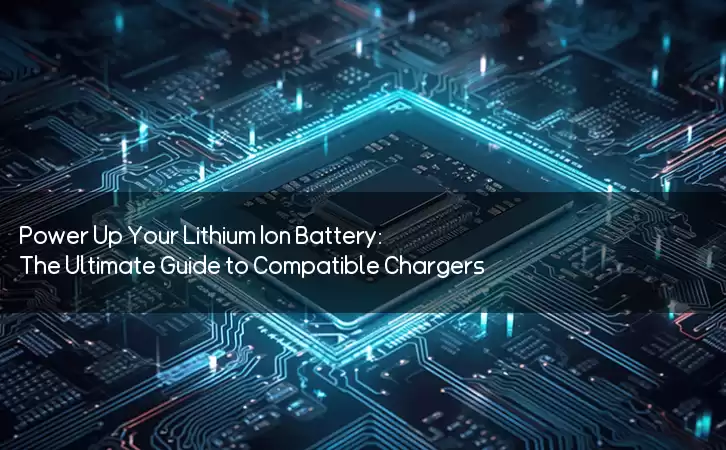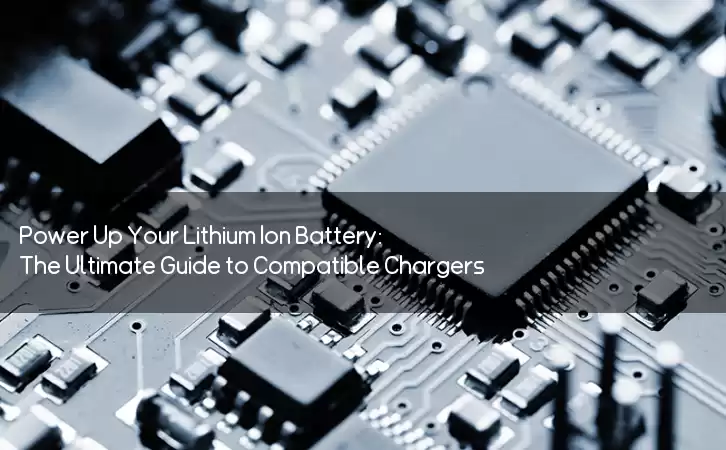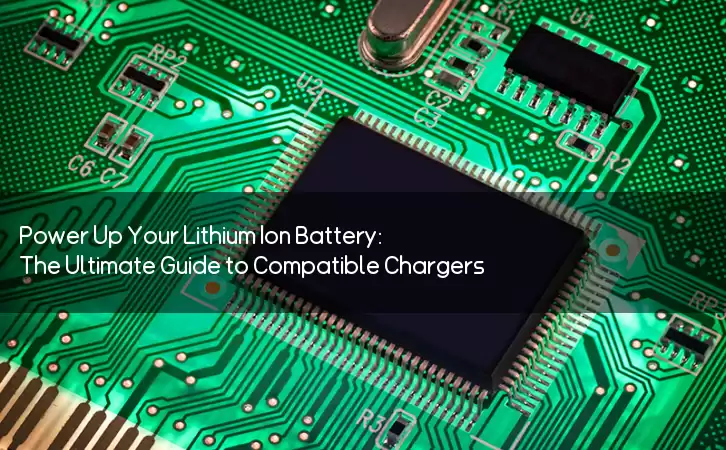Information Center
Power Up Your Lithium Ion Battery: The Ultimate Guide to Compatible Chargers
Published:2023-08-14 00:34:23 Author:Green WCND Views:99Lithium ion batteries have become ubiquitous in our everyday lives, powering our smartphones, laptops, cameras, and a whole range of other electronic devices. With this widespread use has come the need for compatible chargers.

When it comes to charging lithium ion batteries, it is important to understand the voltage and current requirements of the battery. Most lithium ion batteries are designed to operate at a nominal voltage of 3.7 volts, although some high-capacity cells may have a nominal voltage of 3.2 volts or 3.8 volts. The charging voltage should be slightly higher than the nominal voltage, typically around 4.2 volts.

In terms of current, the charging rate should be based on the capacity of the battery. The charging current is typically specified as a multiple of the battery’s capacity, such as 0.5C or 1C. So, for example, a 2000mAh battery with a charging rate of 0.5C would require a charger that can deliver a current of 1000mA.

With these basic requirements in mind, what chargers are compatible with lithium ion batteries? Let’s take a look at some of the most common types.
1. USB Chargers
USB chargers are widely used for charging smartphones and other small electronic devices, and many of them are also compatible with lithium ion batteries. USB chargers typically have an output voltage of 5 volts, so they are not suitable for charging individual cells directly. However, they can be used to charge lithium ion batteries in devices that have built-in charging circuits, such as smartphones and tablets.
2. AC Adapters
AC adapters are commonly used to power laptops and other larger electronic devices, and many of them are also suitable for charging lithium ion batteries. AC adapters typically have an output voltage of around 19 volts, which is much too high for charging individual cells. However, they can be used to charge lithium ion batteries in devices that have built-in charging circuits.
3. Dedicated Battery Chargers
Dedicated battery chargers are specifically designed for charging lithium ion batteries, and they come in a variety of sizes and shapes. Many of them are designed to charge specific types of batteries, such as 18650 cells or AA-size cells. Dedicated battery chargers typically have adjustable charging rates and can safely charge multiple cells simultaneously.
4. Solar Chargers
Solar chargers are becoming increasingly popular for charging rechargeable batteries, including lithium ion batteries. Solar chargers typically consist of a solar panel that converts sunlight into electrical energy, and a built-in battery that stores the energy for later use. Many solar chargers also come with built-in charging circuits that are compatible with a range of different battery types, including lithium ion.
In conclusion, lithium ion batteries are now a common feature in many electronic devices, and there are a variety of chargers available for charging them. USB chargers and AC adapters can be used to charge lithium ion batteries in devices that have built-in charging circuits, while dedicated battery chargers and solar chargers are available for charging individual cells or multiple cells simultaneously. When choosing a charger, it is important to consider the voltage and current requirements of the battery, and to choose a charger that is compatible with the specific type of lithium ion battery you are using.
Power Adapter Design and Customization Guide for Portable Electric KettlesI. Common Design Types for Portable Electric Kettle Power AdaptersPortable electric ke···
I. Common Design Types of Power Adapters External Independent Type (Most Common) Design: A standalone adapter (e.g., "black brick") connected to the p···
Handheld Vacuum Cleaner Power Adapter Selection GuideIntroductionHandheld vacuum cleaners have become a mainstream tool for household cleaning due to their port···
Drill Power Adapter Selection Guide.drill-container { font-family: Arial, sans-serif; line-height: 1.6; max-width: 800px; margin: 0 auto; padding: 20px; } .dril···





